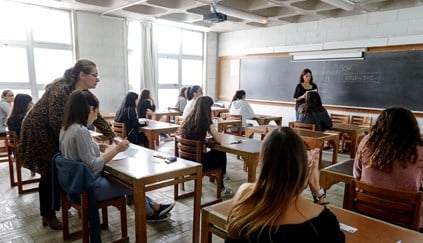More than 80% of the directors of school clusters (AE) and non-grouped schools (ENA) say they do not have the necessary resources for a “truly inclusive education”, indicates a survey carried out by Fenprof released today.
The collection of information carried out by the National Teachers’ Federation concerns “the situation in the AE and ENA in 2023/2024”, with “data from all mainland districts, involving 112,187 students, 12,157 teachers and 5266 operational assistants”.
The sample corresponds to 10% of the mainland’s school groups and non-grouped schools and the respective heads were asked to give their opinion on the four years of application of Decree-Law 54/2018 on Inclusive Education, according to the federation’s website.
According to the results of the survey, carried out during the first term of the current school year, 73% of AE/ENA directors say that the number of special education teachers is insufficient, while 78% consider the same to be true of operational assistants and 85% of specialized technicians.
In relation to these technicians, there is a lack of speech therapists, occupational therapists and psychologists, while in the case of operational assistants it is also mentioned that “only 6% have specific training to work with students with selective and/or additional measures”.
The Fenprof document states that “students with selective and additional measures account for around 8% of all students and around 3.5% refer to students with only indirect support from the Special Education Teacher”.
The teachers’ union also questioned school management about their autonomy to decide on certain issues, such as the constitution of classes, indicating that “currently, around 20% of classes are constituted illegally, i.e. with more than two students with SEN (specific needs) and/or more than 20 students per class”.
In addition to the lack of human resources, several AE/ENA directors surveyed pointed to the lack of material resources, equipment and infrastructure, as well as the great diversity and specificity of cases as the causes of the lack of a “truly inclusive education”.
Reaffirming “the importance of a truly inclusive education for any child or young person, regardless of their individual characteristics and abilities”, Fenprof considers that the results of the survey show that the issue has not been resolved by the legislation passed in 2018, calling on the Ministry of Education to evaluate its application on the ground.

